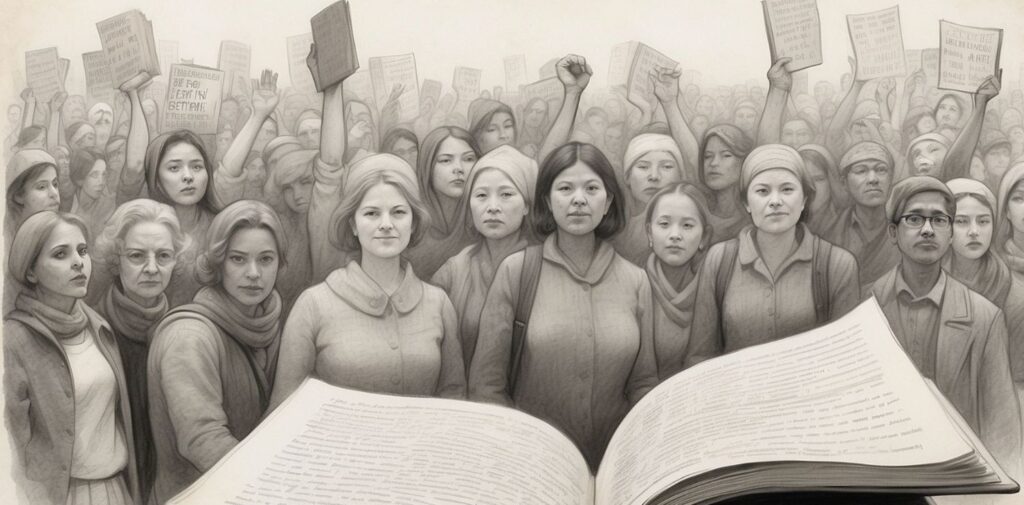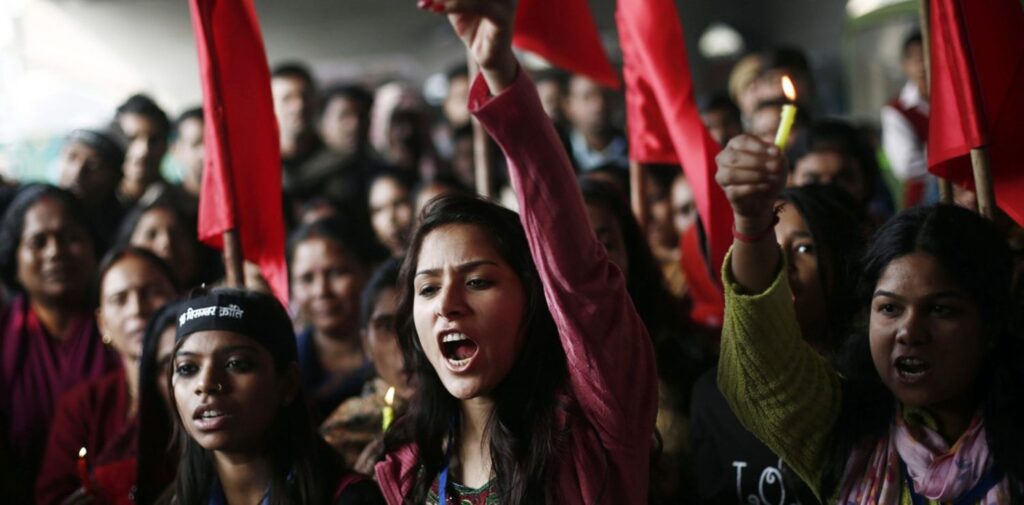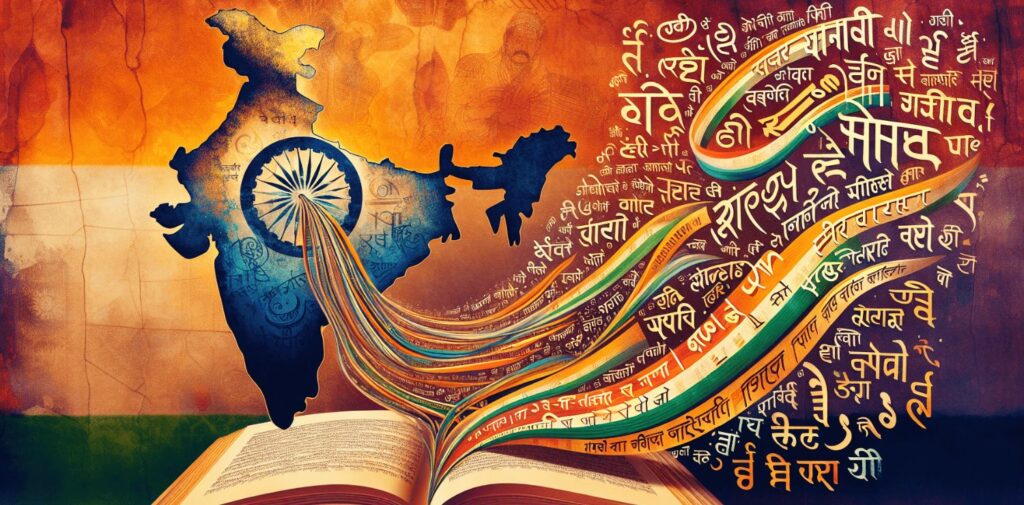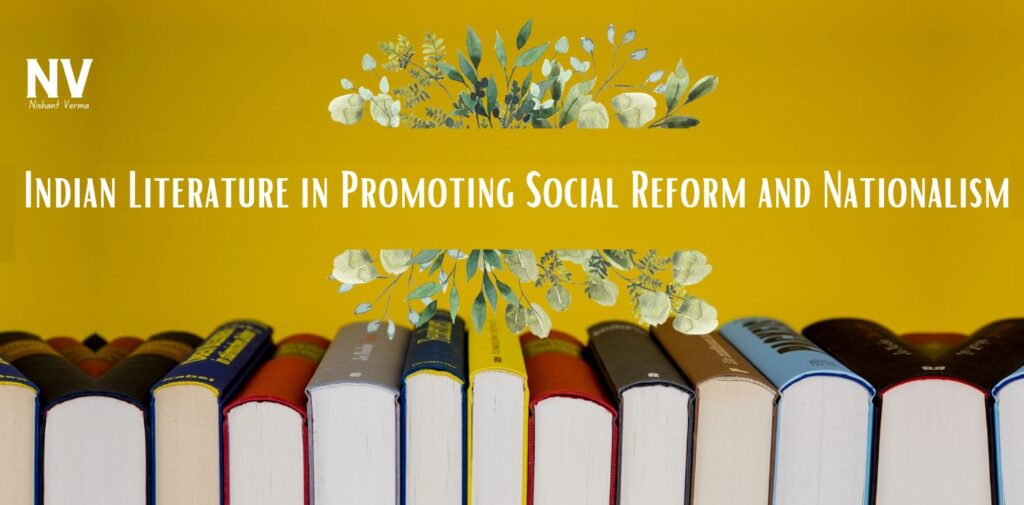Indian literature has always been a powerful medium of expression, influencing society and shaping the nation’s identity. Throughout history, literature has been used as a tool for social change, personal empowerment, and nationalistic movements. During the colonial period, when India was under British rule, literature became an essential weapon in the fight for independence. Writers and poets used their words to awaken the masses, inspire reforms, and spread the ideas of social justice, equality, and national pride.
In this article, we will explore how Indian literature played a crucial role in promoting social reform and fostering a sense of nationalism during the British colonial period. We will also look at the ways in which literature challenged oppressive social norms and helped shape the future of an independent India.

Literature as a Catalyst for Social Reform
India has a rich tradition of literature that spans thousands of years, from the Vedic texts to classical poetry and modern novels. During the 19th and early 20th centuries, Indian writers used their works to address deep-rooted social issues such as caste discrimination, child marriage, women’s rights, and the need for education. Indian literature became a powerful platform for social reformers to express their ideas and encourage the society to move towards a more progressive and just future.
Challenging the Caste System
The caste system, which divided society into rigid social classes, was one of the most oppressive features of Indian society during the colonial period. Writers and social reformers, particularly those from marginalized communities, began to challenge this hierarchical structure through their writings. One such figure was Jyotirao Phule, a social reformer and writer who used his works to criticize the caste system. His book, Gulamgiri (Slavery), exposed the oppression of lower castes and urged for equality and justice. Phule’s writings contributed significantly to the rise of movements aimed at improving the status of Dalits (lower castes) and fighting for their rights.
Another key figure was B.R. Ambedkar, who used literature and law to advocate for the rights of Dalits and to dismantle the caste system. Ambedkar’s writings, including his work Annihilation of Caste, were instrumental in shaping the modern Indian consciousness about caste discrimination. He challenged centuries-old traditions and pushed for a society where people were treated as equals, regardless of their caste.
Fighting for Women’s Rights
Women’s rights were another area of intense focus for Indian writers. During the colonial period, women faced immense social restrictions, including child marriage, limited access to education, and a lack of personal freedom. Indian literature became an important tool in advocating for women’s rights and gender equality.
One of the most prominent voices in this movement was Ishwar Chandra Vidyasagar, a social reformer and writer who campaigned for the abolition of child marriage and the promotion of women’s education. His works, particularly his book Bangalir Itihas (The History of Bengal), advocated for the upliftment of women and criticized the social customs that kept them in a subordinate position.
Rabindranath Tagore, one of India’s greatest literary figures, also contributed significantly to the conversation about women’s rights. Through his poetry, plays, and stories, Tagore questioned traditional gender roles and called for the empowerment of women. In his play Chandalika, for example, Tagore highlighted the story of a woman who defied social norms to assert her individuality and freedom. His works challenged the societal perception of women as mere objects and encouraged them to be educated, independent, and free.

Promoting Education and Social Awareness
Education was another important issue that Indian writers addressed in their works. Many writers, particularly during the 19th century, believed that education was the key to social reform and progress. Writers like Swami Vivekananda and Ram Mohan Roy argued that education could uplift people, free them from superstition, and help them lead better lives.
Swami Vivekananda, through his writings and speeches, emphasized the importance of education in both personal and national development. He believed that a well-educated society would be better equipped to fight oppression and build a strong, independent India. His famous speeches, such as the one delivered at the World Parliament of Religions in Chicago in 1893, inspired many Indians to take pride in their heritage and seek education to improve their lives.
Ram Mohan Roy, often called the “Father of the Indian Renaissance,” also used literature to promote education and social change. He played a crucial role in establishing modern education in India and worked towards the abolition of practices such as Sati (the immolation of widows). His writings, particularly his critiques of traditional Hindu practices, encouraged Indians to look to science and rational thought as guiding principles for social progress.
Literature’s Role in Nationalism
The struggle for independence from British rule was another area where Indian literature played a vital role. As the British Empire tightened its control over India, writers began to use literature to express nationalist sentiments, challenge colonial rule, and ignite the desire for freedom. Literature became a means to unite people from different regions and religions, create a sense of national pride, and encourage resistance against British colonialism.
Encouraging Patriotism and National Unity
As British rule continued to oppress the Indian people, many writers began to use literature as a tool for creating a sense of national consciousness. Writers like Bankim Chandra Chattopadhyay and Rabindranath Tagore played an essential role in stirring patriotic feelings through their works.
Chattopadhyay’s famous poem Vande Mataram (I bow to thee, Mother) became the rallying cry for the Indian freedom movement. The poem, which praised the motherland and called for its liberation, became a symbol of India’s nationalist struggle. It was later adopted by leaders like Subhas Chandra Bose and Bapu Gandhi as a central part of their campaigns for independence.
Tagore, too, played an influential role in shaping the nation’s identity. His famous poem Jana Gana Mana, which later became India’s national anthem, spoke of unity in diversity and the hope for a free and united India. His works inspired a sense of national pride and encouraged people to see themselves as part of a larger Indian identity.
Fostering a Revolutionary Spirit
Alongside mainstream political movements, there were also revolutionary movements aimed at overthrowing British rule. Literature played a significant role in inspiring the youth to take bold steps toward revolution. Bhagat Singh, Chandrashekhar Azad, and Subhas Chandra Bose were deeply influenced by the writings of revolutionary poets and writers.
Kavichandra and Subhadra Kumari Chauhan, two famous revolutionary poets, used their poems to awaken the youth to the injustices of British rule. These poets wrote about the courage of freedom fighters and the need to break free from colonial oppression. Their works were filled with passionate calls for action and sacrifice, motivating young people to join the fight for independence.

The Growth of Indian Languages and Regional Literature
The rise of regional literature played a crucial role in promoting Indian nationalism. As the British imposed English as the medium of education and administration, many Indian writers turned to their regional languages to express their ideas and connect with the common people. Writers from Bengal, Maharashtra, Tamil Nadu, Punjab, and other regions began producing literature in their native languages, emphasizing the richness of India’s cultural diversity.
This literary movement helped strengthen regional identities and contributed to the broader nationalistic movement. Writers like Toru Dutt, Sarat Chandra Chattopadhyay, and Mulk Raj Anand used their stories to highlight the issues faced by ordinary Indians and encouraged the masses to be proud of their cultural heritage.
Conclusion: Indian Literature
Indian literature has played an indispensable role in shaping the nation’s social and political landscape. From challenging deep-seated social norms to advocating for national independence, writers and poets have used their words to inspire change and bring about reform. During the colonial period, literature became an essential tool for social reformers and nationalists, allowing them to reach people across India and encourage them to fight for a better, more just society.
The legacy of this literary movement continues today, as literature remains a powerful means of promoting social change, empowering individuals, and fostering a sense of national unity. Indian literature’s role in promoting social reform and nationalism has left an indelible mark on the country’s history, helping to shape a modern, independent India.




